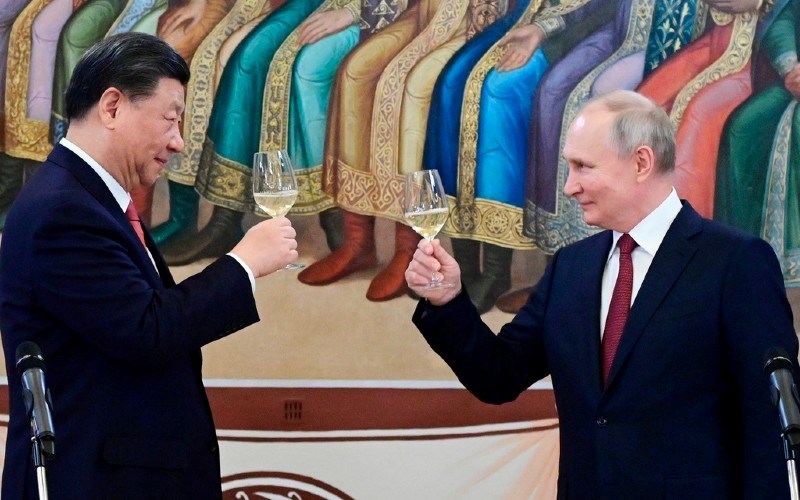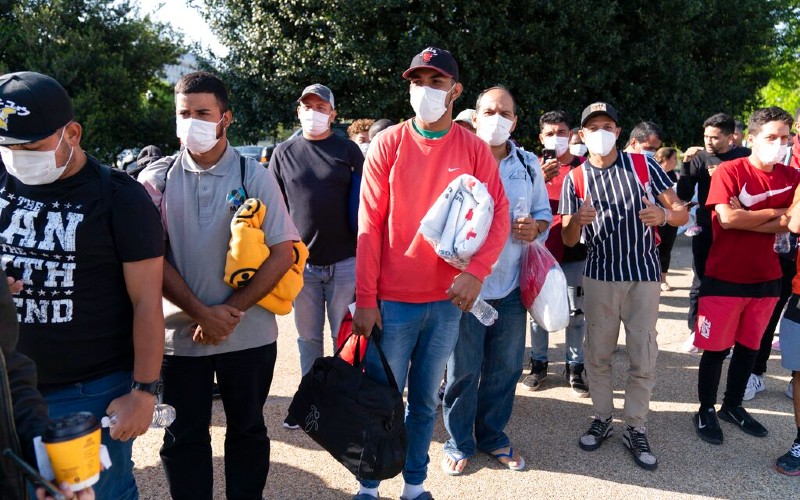During this week's talks between Chinese leader Xi Jinping and Russian president Vladimir Putin, it became clear to many that China and Russia are firmly aligned against their biggest enemy, the United States.
“Change that hasn’t happened in 100 years is coming,” Xi told Putin, when the two men shook hands and departed. “And we are driving this change together.”
In an article published for the meeting, Chinese propaganda newspaper People's Daily published a column by Putin in which the Russian leader called the China-Russia cooperation "the cornerstone of regional and global stability."
The column goes on to describe economic ties including record-setting bilateral trade; a Russian-Chinese pipeline in Siberia; and international agreements including the Eurasion Economic Union; the Shanghai Cooperation Organization; and the BRICS partnership that includes Brazil, Russia, India, China, and South Africa.
To some observers, it also becoming clear that Xi eclipses Putin as the more powerful decision maker in that China-Russia partnership.
Bob Maginnis, senior fellow for national security at the Family Research Council, says he is concerned Xi is “taking the forefront” as a diplomatic peacemaker. The military analyst says he was especially concerned after Saudi Arabia and Iran announced closer diplomatic ties, and China took credit for it.
That announcement came March 10, a week before Xi departed for Moscow, and it reportedly caught the White House off guard.
Saudi Arabia and Iran have been fighting proxy wars in Yemen and in Syria since 2015 and 2013 respectively, a Fox News story pointed out, and a defense analyst told Fox it appears Iran is working with China to undo U.S. influence in the region.

Back at the U.S. State Department, however, spokesman Ned Price reacted to that diplomatic win by China by suggesting it didn't involve China, only the two countries involved.
"I have a difficult time wrapping my head around how our role could be supplanted," Price told reporters, "when no country on earth has done more to help build a more stable, a more integrated, region."
Maginnis says Xi is seeking a new world order, which he calls a "new paradigm for international relations" that is happening right before our eyes.







